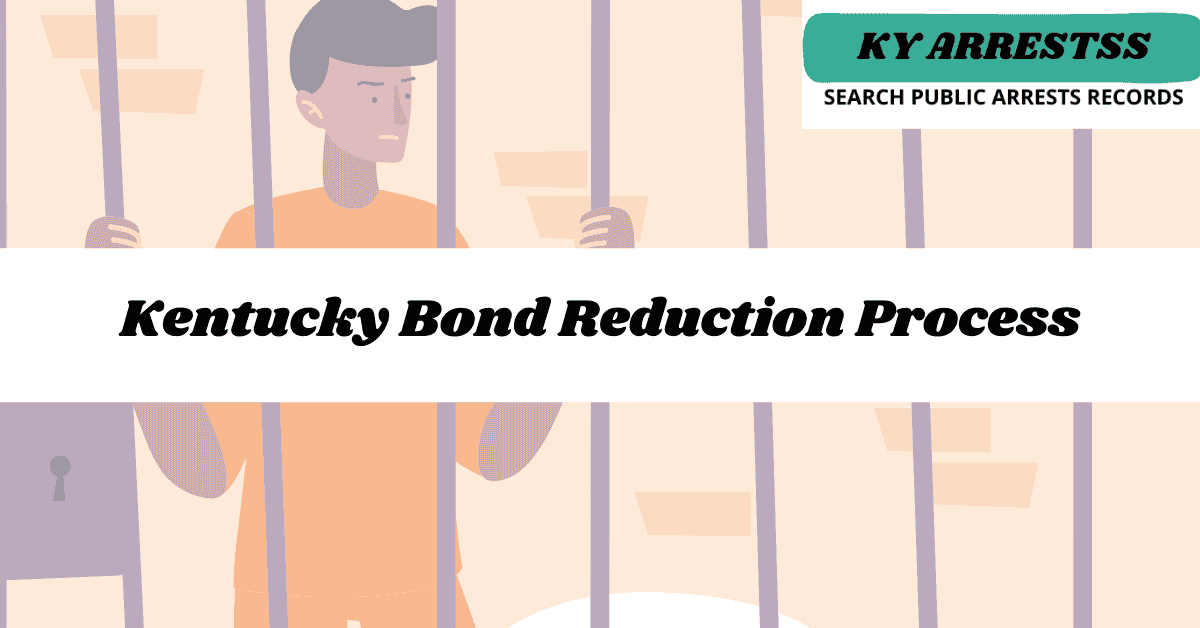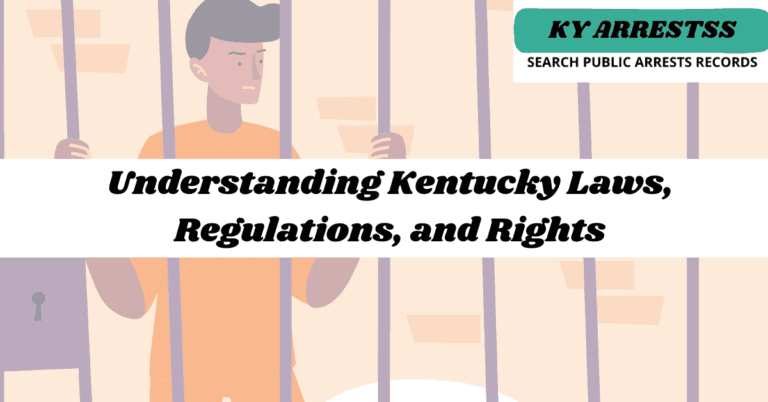Kentucky Bond Reduction Process
Bond reduction is a critical aspect of legal proceedings in Kentucky, playing a pivotal role in ensuring fair and just outcomes for defendants. Understanding the intricacies of the bond reduction process is essential for individuals facing legal charges and seeking to alleviate the financial burden associated with bail. In this comprehensive guide, we delve into the Kentucky bond reduction process, elucidating the steps involved, factors considered, challenges encountered, and the significance of legal representation.
Understanding Bail Bonds
Bail bonds play a pivotal role in the legal system, allowing individuals accused of crimes to regain their freedom until their trial dates. When someone is arrested, they have the option to post bail, which acts as a form of collateral to ensure their appearance in court. Bail bonds are typically set by judges based on various factors, including the severity of the alleged crime and the defendant’s flight risk.
The Need for Bond Reduction
In many cases, the initial bail amount set by the court may be prohibitively high for defendants to afford. This can result in individuals remaining incarcerated for extended periods, even if they pose no flight risk or threat to the community. Consequently, seeking a bond reduction becomes essential for those unable to meet the original bail requirements.
Legal Criteria for Bond Reduction
In Kentucky, the process of seeking bond reduction involves presenting a formal request to the court. Judges consider several factors when evaluating such requests, including the defendant’s financial resources, ties to the community, and the nature of the charges against them. Additionally, defendants must demonstrate a significant change in circumstances or present compelling evidence to justify a reduction in bail.
Role of Defense Attorney
Navigating the legal complexities of bond reduction often requires the expertise of a skilled defense attorney. Defense attorneys play a crucial role in advocating for their clients’ interests and presenting persuasive arguments for bond reduction during court hearings. With their knowledge of the law and experience in similar cases, defense attorneys can significantly improve the chances of a successful outcome for their clients.
Steps to Request Bond Reduction
The process of requesting bond reduction in Kentucky typically begins with the preparation of a formal motion filed with the court. This motion outlines the reasons for seeking bond reduction and provides supporting evidence to bolster the request. Defendants must adhere to strict procedural guidelines and deadlines when submitting their motion, ensuring compliance with legal requirements.
Court Hearing for Bond Reduction
Upon filing a motion for bond reduction, defendants can expect to appear before a judge for a formal hearing. During this hearing, both the defense and prosecution have the opportunity to present their arguments regarding the requested bond reduction. The judge carefully considers all evidence and legal arguments before making a decision on whether to grant or deny the motion.
Judicial Discretion in Bond Reduction
It’s important to note that judges exercise considerable discretion when determining whether to grant bond reductions. While defendants may present compelling arguments and evidence, the final decision ultimately rests with the presiding judge. Factors such as the defendant’s criminal history, ties to the community, and perceived flight risk are taken into account during this deliberation process.
Impact of Bond Reduction
Securing a bond reduction can have significant implications for defendants awaiting trial. Not only does it afford them the opportunity to await trial outside of custody, but it also allows them to better prepare their legal defense and maintain their employment and family responsibilities. However, it’s essential for defendants to recognize the responsibilities that come with bond reduction, including compliance with court orders and ongoing legal obligations.
Case Studies
Examining real-life examples of successful bond reduction cases can provide valuable insights into the process’s efficacy and potential outcomes. By analyzing these cases, defendants can gain a better understanding of the strategies employed and the factors that influenced the judges’ decisions. Additionally, they can learn from any challenges or pitfalls encountered during the bond reduction process.
Community Support and Resources
For individuals navigating the bond reduction process, there are numerous community organizations and resources available to provide assistance and guidance. Legal aid clinics, nonprofit organizations, and pro bono legal services may offer support to those in need, helping them understand their rights and navigate the legal system effectively.
Alternatives to Bond Reduction
In cases where bond reduction is not feasible, defendants may explore alternative options for securing their release from custody. Pretrial release programs, electronic monitoring, and supervised release are among the alternatives available to individuals who cannot afford bail or meet the criteria for bond reduction. It’s crucial for defendants to explore all available options with the guidance of their legal counsel.
Importance of Compliance
Once granted bond reduction, defendants must adhere to all court orders and conditions imposed by the judge. Failure to comply with these conditions can result in the revocation of bond reduction and the defendant’s return to custody. By fulfilling their legal obligations and abiding by the terms of their release, defendants can demonstrate their commitment to the legal process and mitigate any potential risks associated with non-compliance.
FAQs
What is the Kentucky Bond Reduction Process?
The Kentucky Bond Reduction Process is a legal procedure that allows individuals who have been arrested and charged with a crime to request a reduction in their bond amount. This process is designed to provide defendants with an opportunity to secure their release from custody while awaiting trial, by presenting evidence and arguments to the court that demonstrate the reasons why the bond amount should be reduced.
Who is eligible for the Kentucky Bond Reduction Process?
Any individual who has been arrested and charged with a crime in Kentucky is eligible to request a bond reduction. However, the court will consider various factors when determining whether to grant the request, such as the seriousness of the offense, the defendant’s criminal history, ties to the community, and the likelihood of the defendant appearing for future court proceedings.
How do I request a bond reduction in Kentucky?
To request a bond reduction in Kentucky, you must file a motion with the court. The motion should outline the reasons why you believe the bond amount should be reduced and provide any supporting evidence or documents. It is recommended to consult with an attorney who specializes in criminal defense to guide you through the process and ensure all necessary steps are taken.
How long does the Kentucky Bond Reduction Process typically take?
The length of time it takes to complete the Kentucky Bond Reduction Process can vary depending on various factors, such as the complexity of the case, the court’s schedule, and the availability of all parties involved. In some cases, the process can be completed within a few weeks, while in others, it may take several months. It is recommended to consult with an attorney to get a better understanding of the expected timeline for your specific case.
Can I represent myself during the Kentucky Bond Reduction Process?
Yes, you have the right to represent yourself during the Kentucky Bond Reduction Process, but it is highly recommended to seek legal representation from an experienced attorney. A knowledgeable attorney can help you navigate the complex legal procedures, ensure that your rights are protected, and present the strongest possible case for a bond reduction. They can also provide guidance on the appropriate arguments and evidence to present to the court.
Conclusion
Checking arrest records in Kentucky is a straightforward process that can provide valuable information for legal proceedings, employment background checks, and personal safety. By following the step-by-step instructions provided in this guide, you can access the necessary arrest records accurately and efficiently. Remember to utilize the official Kentucky Court of Justice website for reliable and up-to-date information.







